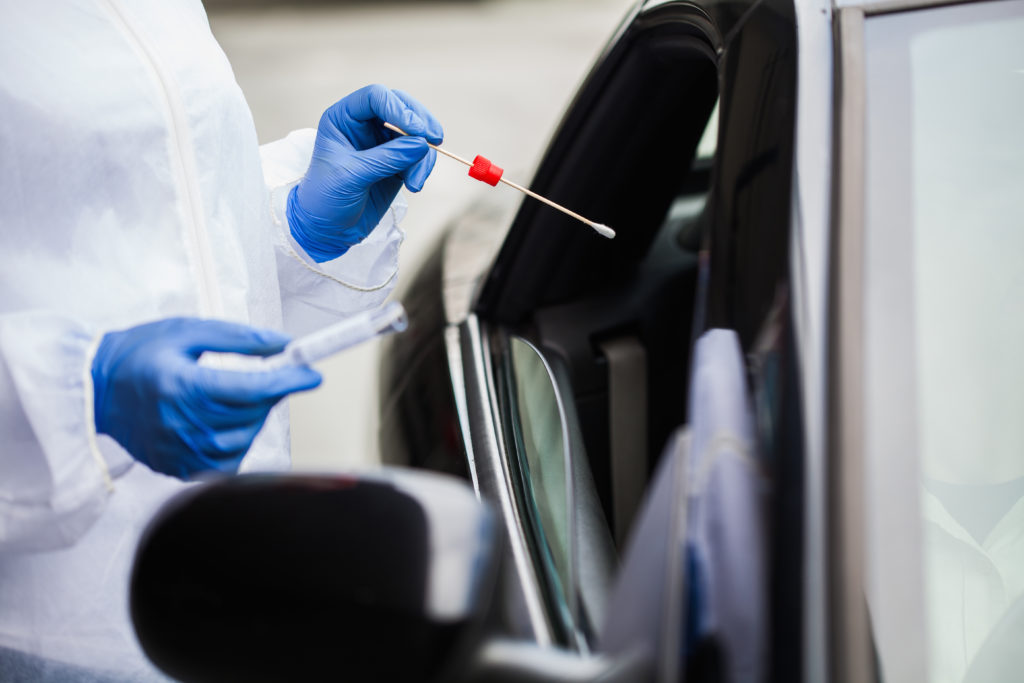In 1988, the Clinical Laboratory Improvement Amendments (CLIA) were created to maintain and regulate safe laboratory testing. Three federal agencies uniquely support CLIA: The Food and Drug Administration (FDA), the Centers for Disease Control and Prevention (CDC), and the Centers for Medicare & Medicaid Services (CMS). Each has specific responsibilities to assess that CLIA-certified healthcare facilities that procure human samples to diagnose, prevent, or treat health conditions operate to standards. Any healthcare or laboratory facility that collects specimens must achieve certification from CLIA and maintain current certification. There are waived tests approved by the FDA that comply with CLIA and are safe to do at home with their low-risk for “erroneous” results, like a glucose monitor for diabetic patients, blood pressure monitors, and select pregnancy tests. With the increased push for reliable COVID-19 testing, it brought the issue of CLIA certification to light.
On October 9, 2020, CMS released an update on its continued action against facilities administering COVID-19 tests without the correct CLIA certifications in place. From August 12, 2020, to the present, the organization issued 171 cease and desist letters to facilities who conducted COVID tests without the right certifications. CMS determined that 34% of the 171 facilities performing COVID tests did not have a CLIA certificate at all, while 66% of the facilities performed tests that did not align with CLIA guidelines.
As trusted care deliverers, healthcare organization personnel are responsible for ensuring facilities in their networks are safe and compliant with CLIA certification, especially in the era of COVID-19.
New Tools to Expedite CLIA for COVID-19 Testing
Any location where a patient can receive a COVID test is considered a laboratory, according to CMS. In their October 9, 2020 press release, CMS cited that the act of performing non-CLIA certified tests can jeopardize their integrity and may give the recipient false information, putting themselves and others at risk. On September 25, 2020, CMS announced the release of new tools to help facilities faster apply and pay for CLIA certification, expediting the process so laboratories can safely begin COVID-19 testing sooner. Their quick-start guide is a four-page, step-by-step illustrated guide to show applicants how to apply correctly, so there are no delays in achieving certification. They have the option of emailing their applications in, too, as opposed to paper applications. Applicants can now pay fees on the CMS CLIA website through a platform hosted by the United States Treasury, which is quicker than a traditional mail-in payment.
A Care Manager’s Role to Confirm CLIA-Certified Facilities
With the COVID-19 pandemic remaining a significant risk to the American population, testing will only continue. Care teams play an essential role in this, especially when they direct patients to lab locations for COVID tests or other assessments in their network. On the CDC website, a care manager can look up a laboratory either by CLIA number, name, or location, to confirm their CLIA certificate before sending a patient there for services. Organizations that employ care managers should also require a lab furnish their CLIA certification once a year if they are not required to already, as CLIA certificates are active for two years. COVID presents a bigger risk for fraudulent testing laboratories that charge a significant sum to rapid results and lack the accuracy and integrity that CLIA safeguards.
For added quality control of laboratories, the CDC manages the Clinical Laboratory Improvement Advisory Committee (CLIAC), a team of “diverse membership across laboratory specialties, professional roles, (laboratory management, technical, physicians, nurses) and practice settings (academic, clinical, public health), and includes a consumer representative.” The team’s role is to supply the Department of Health and Human Services (DHHS) with findings related to improving CLIA’s quality and practice standards. CMS also outlines how to report complaints about a laboratory by contacting the appropriate State Agency to investigate.

Christine DiNoia, BSN, RN is a Clinical Transformation Advisor at Lightbeam.
